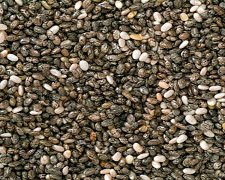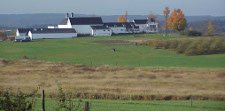
The world’s oldest seed bank in St. Petersburg, Russia, is within a month of being destroyed. If neither the president nor prime minster step in, this vital collection of plants and seeds will be lost forever.
So what? Why should you care about some strawberries and raspberries? Let’s look at the reasons that Pavlovsk in particular, and biodiversity in general, are so important to our health and the health of our planet.
Russia’s Proud History

During the siege of Leningrad during World War II, which lasted nearly 900 days, scientists chose to lose their lives rather than eat the seeds that were entrusted to them. That’s right, a dozen people starved to death rather than destroy a food collection so valuable, it is literally priceless.
Have you ever seen that illustration of hell as a boiling cauldron of soup with emaciated figures standing around it? They all have spoons longer than their own arms and, as such, are unable to spoon the broth into their own mouths. They stare longingly at the food, but wither and die anyway.
I can’t imagine that our scientists, recognized as Russian heroes, had a death any less painful. Ever stoic and resolved, these proud Russians opted to lose their lives rather than destroy the food they believed to be vital to Mother Russia and the rest of the world.
So what’s Russia doing now? Oh, just planning to raze the Pavlovsk Research Institute outside of St. Petersburg (nèe Leningrad). For a housing development. Insert shock and disgust.
There’s a bumper sticker that I love, “If you’re not outraged, you’re not paying attention.” I’ll be pretty outraged if the Russian government spits in the faces of those Russian scientists who gave their lives to protect a cause they believed in so deeply.
Why Is Pavlovsk Important?

A Russian proverb says, “Every seed knows its time.” Could it be that the seeds of Pavlovsk will never know their time? Russia is a beautiful country, full of extremely educated, well-spoken people. I know because I’ve been there. I love Russia and the Russian people. And if you’ve read any of the writing I’ve done here on SteroidsLive, you know that I also love food.
That’s why, when I read the news that the courts upheld a previous decision to allow the federally owned land where the seed bank resides to be given to housing instead, I actually cried. Shed tears. Over food.
Pavlovsk is the the largest seed bank in Europe, and this particular collection of seeds contains over 5,000 species, including over 1,000 unique varieties of strawberries alone. So why not just move the seeds? Unfortunately, it’s largely a field collection, meaning that most of it is planted.
Even if transplanting were an option, the time required to move the whole group would figure well into years. For the next month, only President Dmitry Medvedev and Prime Minster Vladimir Putin have the power to overrule the court.
If these men do not opt to save the bank, the land will immediately belong to Housing. That means there’s no opportunity to transplant even the few things that are currently in season.
Just to make it clear what’s at stake, over 90% of the Pavolvsk collection is found in no other collection or seed bank in the world. That means when it is razed, not only will the world lose its oldest seed bank, but also at least 4,500 varieties of seeds.
Pavlovsk collects plants that are particularly adaptable, which is important to the world food supply going forward. As current food varieties become unsuitable due to climate change, stripped soil, and disease, the plants here could help feed the planet’s populace.
This isn’t just some worst-case scenario necessity like a nuclear holocaust, so please don’t think I’m being fatalistic. Besides keeping certain plant varieties from extinction, these seeds could save us from extinction!
What Is Biodiversity?
Biodiversity is, most simply, the number and variety of organisms living within a biome. In this case, we’re referring to the plants we use for food, and our biome is planet Earth.
With every extinction, whether it be of a people group, animal, or food source, our planet becomes less diverse, less adaptable, less educated. The things that were once widely known as foodstuffs are forgotten. Take chia, for example. This incredibly healthy seed is enjoying a resurgence because some living peoples remembered that it is good for them.
Its use nearly snuffed out by the Spanish conquistadors because of its role in native worship, a brave few Aztecs dared to remember, and to tell their children. Now, we have the opportunity to do the same thing for future generations (and perhaps even ourselves).
Why Is Biodiversity Important?

There are many reasons that biodiversity is absolutely critical to the survival of the species, but I’ll give you just a few. First, more species means a greater variety of crops. This isn’t just for human consumption, but for animals to eat as well.
When humans run out of food, they eat more animals. When animals run out of food, we have a problem. Our sustainability is crippled each time we lose a food crop.
Perhaps the most critical and practical reason we need biodiversity today is that healthy biomes (or ecosystems) recover better from natural disasters. If you’ve watched the news in the last, oh, five years, you know that we’re reaching critical mass on the disaster front.
Seems you can’t turn on the television without hearing about mudslides, floods, or earthquakes devastating any given part of the world. What will we do without crops that can withstand previously unheard of conditions?
What Can I Do?

Did you know that most people in the United States have only ever eaten one variety of banana? However, there are at least five hundred varieties still in existence, and there were likely many more at one time.
Because we care more about having unblemished fruit than flavor and variety, we’ve settled for just one type type in our diets. That’s all fine as good as a matter of personal preference, but what do we do when our current species is decimated by a bug or a fungi, and we have no other options?
One of the best ways I’ve found to maintain diversity in our diets is to buy heirloom varieties as much as possible. They may not look as perfect as the varieties filling the bins of your local supermarket, but having them available in case of emergency is so important.
You can also support the Ark Institute, dedicated to preserving non-GMO seed varieties. Besides the obvious general support of biodiversity, Guardian.co.uk has launched a Twitter campaign to save the seed bank. This is absolutely critical, so please take the time to Tweet with the hashtag Pavlovsk (#Pavlovsk).
President Dmitry Medvedev has opened a formal investigation because of this campaign, so it’s imperative that concerned world citizens continue to show support for the efforts being made here and now.
The time is short. Until the day of destruction, there’s nothing I can do but Tweet, pray, and hope that another Russian proverb rings true to save the seed bank, “a drop hollows out a stone.”